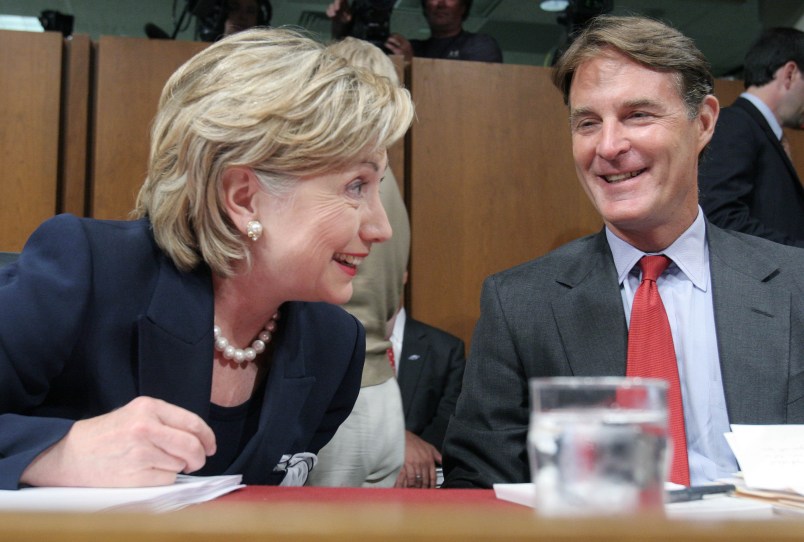One of the political difficulties complicating the Democrats’ ability to seal the deal on health care is perfectly familiar: moderate Democratic senators have an aversion to playing procedural hardball on an issue that’s become deeply polarizing. The option staring members of both chambers in the face involves Senate leaders taking an unusual step–circumventing a filibuster to pass legislation preemptively making some significant changes to their own health care bill. The move–called budget reconciliation–is sure to raise howls and objections from conservatives and Republicans, and, as such, Democrats in contested states are saying, “don’t go there.”
One of those Democrats is Sen. Evan Bayh (D-IN), who charged out of the gate this week saying he opposes the process. Scratch the surface, though, and the political rationale for Bayh’s decision becomes clear.
“There would be some real consequences from that for the legislative agenda for the rest of the year,” Bayh told me last night, “the other things the president called for: cooperation on education, financial reform, a whole host of other things.”
Bayh says he sees a real prospect for bipartisanship on those issues, but that Republicans will walk away if Democrats play hardball on health care.
“The problem with reconciliation is that it runs a real risk…of poisoning the well on progress on some of these areas,” Bayh said.
I asked Bayh if he foresees a real risk of Republicans refusing to co-operate on these issues because of their objection to a bold procedural strategy on health care.
“I think there’s a real risk of that,” Bayh told me. “They’ve sort of said it.”
And if the shoe was on the other foot, would you walk away from an issue you supported because Republicans pushed their agenda forward by any means necessary?
“It would depend what the issue was,” Bayh said. “But look, our side complained about reconciliation when it was used to pass President Bush’s tax cuts. I would expect they would react in a similar way if we resorted to that sort of techniques.”
But the record there is public and clear. In 2001, 12 Democrats (though not Bayh) teamed up with Republicans to pass Bush’s tax cuts through reconciliation. In 2003, two Democrats did the same. Reconciliation, it seems, may have made some Democrats mad, but it didn’t destroy Bush’s agenda by poisoning the well of bipartisanship. President Obama faces much more partisan terrain overall, and that is what troubles Bayh about charging ahead. Without any Republican cover, Bayh wants to avoid aligning himself with any initiative that’s exclusively Democratic. And nothing fits that bill like an at-all-costs approach to health care reform.






